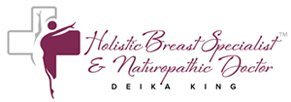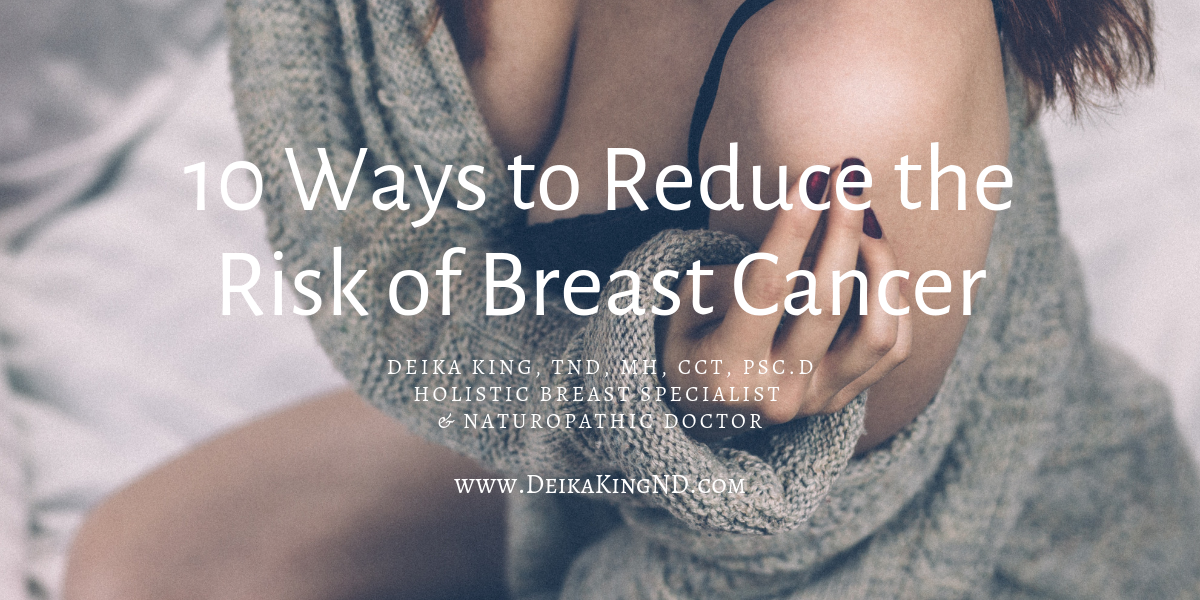It is natural to feel nervous about having breast cancer. Because nearly everyone knows someone who has had cancer, it is normal to worry about it, and also wonder what you can do to protect yourself.
Fortunately, there are real ways to reduce your risk factors. It is also very important to speak with your doctor about your individual risk factors and how often you should be screened as a preventative measure.
10 Ways To Reduce Risks For Breast Cancer
-
Maintain a healthy weight
—keeping your weight in check is an important part of reducing your risk for breast cancer. Being obese can increase your risks for many types of cancer, and particularly breast cancer.
-
Stay physically active
—the more physically active you are, the less is your risk for breast cancer, exercising 30 minutes per day; 5 days per week can also help you lose weight or maintain a healthy weight.
-
Eat vegetables and fruits
—a healthy diet can help decrease the risk of breast cancer. Try to eat plenty of vegetables and fruits, and decrease your alcohol intake to less than a drink per day. While moderate drinking can be good for your heart if you are older, even lower levels of alcohol intake can increase your risk of getting breast cancer. If you don’t drink now, don’t start. If you already drink, there is no reason to stop drinking. Just cut down to a drink a day or less.
-
Don’t smoke cigarettes
—both smokers and nonsmokers recognize just how bad smoking is for you. Besides lowering your risk of at least fifteen cancers, stroke, and heart disease, it also makes your breath smell bad, gives you bad teeth, and causes wrinkles.
-
Breastfeed your infant
—breastfeeding for about one year or more in all of your children decreases the risk of breast cancer. It also has good health benefits for your children.
-
Don’t take birth control pills
if you smoke or are older than thirty-five years of age—birth control pills have benefits and risks. When you are younger, the risk of taking birth control pills is less. When you stop taking birth control pills, you have a much better chance of avoiding breast cancer. You also have a greater risk of stroke or heart attack when on the pill, especially if you smoke. Long-term use of birth control pills can decrease the risk of ovarian cancer, uterine cancer, and unwanted pregnancies so they aren’t all bad for you. If you are worried about breast cancer, however, taking the birth control pill isn’t for you.
-
Stay away from hormones after menopause
—you shouldn’t take hormones after menopause if you want to avoid getting breast cancer. Research has shown that they have mixed effects on your health, raising the risk of heart disease and raising the risk of breast cancer. If you need to be on post-menopausal hormones, don’t take them for a long period of time if you want to avoid these risks.
-
Take raloxifene and tamoxifen
—while these aren’t thought of as being healthy for you, they do decrease the risk of breast cancer in women who are at a great risk for getting the cancer. These drugs are approved by the US FDA for the prevention of cancer and can have strong side effects, so not everyone should take them. High-risk women should speak to their physician about whether or not to take these drugs to prevent breast cancer.
-
Determine your family history
—if you have a strong family history for the disease, you likely could develop the disease. By understanding your family history, you can take steps to avoid breast cancer in yourself before you get it yourself.
-
Get screened for the disease
—there has been some controversy about when you should start having mammograms. Even so, it does seem to save some people’s lives. Mammograms can detect cancer once it has been developed. It is important to note that there are other screening methods that are effective for breast screening. These methods include, ultrasound and thermography screening. Although mammography is the Gold Standard that is used by medical doctors, it is important to know that screening options such as thermography are great for looking for early signs of disease even before it becomes a structure. To learn more about thermography screening, please visit our website.
Deika King, TND, MH CCT, PSc.D
Traditional Doctor of Naturopathy Houston
832-422-7271







